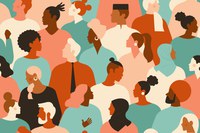HSF Calls on Unregistered Voters to Make Use of the On-going Online Registration
With President Cyril Ramaphosa officially having announced the election date of 29 May 2024, there is limited time for those who are yet to register to vote.
While the Independent Electoral Commission (IEC) has since finalised all its in-person registration, on-going online registration and registration at different IEC offices are still open.
The Helen Suzman Foundation (HSF) is, therefore, calling all those who have not yet registered, in particular the youth and those living abroad, to utilize the online registration before the proclamation is made tomorrow.
The (IEC) has since announced that the voters’ roll has increased to 27.4 million following the last round of voter registration early this month. With online registration continuing, it becomes our collective duty to find ways in which to engage all those who are yet to register.
Voter apathy continues to be a serious issue in South Africa and world wide. However, a South African study on voter abstention in the 2021 local government elections found that only 14% of voters who chose not to vote did so as ‘hardened abstainers’, the rest cited a mix of administrative and individual barriers. The most cited individual barrier was not being registered to vote on election day. These findings suggest that disillusionment with political accountability ranks beneath structural and individual barriers to voting in explaining low voter turnout in our most recent local government elections. The reasons for a national election might differ slightly, however, one should be cautious with attributing general apathy as the driver of low voter turnout in South African elections.
The study further found that non-voters were more likely to be young and students. Many young people cite low trust levels in politicians and political parties as their main reason behind not voting and seem unable to shift these attitudes because of old promises made.
We therefore cannot hope that voters will be positively motivated purely by election campaigns and manifestos alone and should find other ways to engage these individuals. It would further be wrong and disrespectful to think that people decide to abstain from participating in elections simply because they lack the education around the need for and importance of exercising their constitutional right to vote. Many abstain because they continue to coexist with poverty, unemployment, and repeated unfulfilled promises from politicians and political parties. This has forced them to abandon their civic duties, because their participation in democratic processes has not yielded any fruitful outcomes for them.
Within the registered population there is also a large degree of apathy. In the 2019 national elections just 66.05% of the 26 756 649 registered voters turned up to cast their vote. It thus forces us to approach such disinterested voters with a spirit of engaging them on their disillusionment and how voting can be a solution to their problems.
The 2024 general elections are set to be ground-breaking. Not only because the elections come as the country is marking 30-years of democratic rule, but because there are some who believe that a coalition government might be on the cards on a national level given the different polling predications. As a result, it is important for everyone to play their part in maintaining the health of democracy by registering to vote, so that government will be representative of all citizens.
Registering to vote is a vital step to ensuring that one can meaningfully engage with the political parties and independent candidates of their choice. The next few months will be filled with various manifesto launches, campaigns, and engagement from the political space and by choosing not to register, an individual takes away their option to vote should they later choose to.
Delivering the 2023 Helen Suzman memorial lecture, retired judge, Johann Kriegler called on civil society to play its role in properly canvassing and motivating young people to come in their numbers and vote in next year’s elections.
Kriegler admitted that “there is, at the moment, a remarkable upsurge of political interest among South African young people,” which just needs to be motivated by the right people to participate in elections.
Given civil society’s track record of holding power to account, and the level of trust it enjoys from citizens, it becomes clear that civil society can easily motivate disinterested youth to not only register, but also to vote.
While this doesn’t mean that civil society should endorse or put forward a political candidate of their own, it means that its emphasis on a constitutional democracy should encourage the public at large to have their voices heard in how South Africa will be governed over the next 5 years.
It is important to emphasize that the future of this country is in the hands of those who are willing to defend the gains of our democracy by exercising their civic duty.
We now have an opportunity to chart a new path of finding solutions to our problems through the ballot and, to not only show our satisfaction, but our dissatisfaction with how the current government has failed to live up to its promises.
The next piece in our elections series will focus on some considerations for citizens in deciding who to vote for.
How to Register to vote:
- ONLINE UNTIL DATE OF PROCLAMATION OF THE ELECTIONS
To submit an online application for voter registration and/or update your registration email click here.
- IN PERSON REGISTRATION AT THE IEC OFFICES
You can visit your local IEC offices and register to vote in person, and/or check and update your existing details.
- IF YOU ARE A SOUTH AFRICAN LIVING ABROAD
You can also register to vote online by clicking here.
Ezekiel Kekana & Sophie Smit are researchers at Helen Suzman Foundation.

